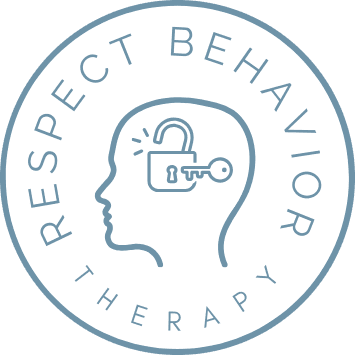Cultural Considerations in ABA

Posted on April 26th, 2024.
In the realm of Applied Behavior Analysis (ABA), understanding and respecting diverse cultural backgrounds is paramount for effective therapy outcomes. ABA, a widely recognized and evidence-based approach to addressing behavioral challenges, thrives when it acknowledges and incorporates the rich tapestry of cultural nuances that shape individuals' lives.
Let's delve into why cultural considerations matter in ABA therapy and how they influence treatment approaches.
Recognizing Diversity in ABA Settings
In ABA settings, diversity isn't just a buzzword; it's the cornerstone of effective practice. Every client brings a unique set of cultural experiences, beliefs, and values to the therapy table. Acknowledging and embracing this diversity allows therapists to tailor interventions that resonate with each individual's background.
The Impact of Cultural Competence
Cultural competence isn't just about being aware of cultural differences; it's about actively integrating this awareness into every aspect of therapy. A culturally competent ABA therapist understands how cultural factors shape behavior and is adept at adjusting interventions accordingly.
Language Considerations in ABA Therapy
Language is a powerful conduit for communication, but it's also deeply intertwined with culture. In ABA therapy, therapists must be attuned to clients' linguistic preferences and proficiency levels. Offering therapy in the client's preferred language fosters a deeper sense of understanding and trust.
Navigating Belief Systems
Belief systems play a significant role in shaping individuals' worldviews and behaviors. ABA therapists must approach clients' belief systems with respect and openness, understanding how these beliefs influence their perceptions and responses to therapy interventions.
Adapting Intervention Strategies
One size does not fit all in ABA therapy, especially when it comes to cultural considerations. Therapists must be flexible in their approach, willing to adapt intervention strategies to align with clients' cultural norms and preferences.
Collaborating with Families and Communities
Families and communities serve as crucial allies in the ABA therapy journey. Engaging with families and community members allows therapists to gain valuable insights into clients' cultural backgrounds and tailor interventions accordingly.
Addressing Barriers to Access
Cultural barriers can impede access to ABA therapy for marginalized populations. It's essential for ABA providers to proactively address these barriers by offering culturally sensitive services and actively seeking feedback from diverse communities.
Ethical Considerations in Cross-Cultural Practice
Ethical dilemmas may arise when navigating cross-cultural dynamics in ABA therapy. Therapists must adhere to ethical guidelines while also respecting clients' cultural values and traditions, striking a delicate balance between professional standards and cultural sensitivity.
Embracing Cultural Humility
Cultural humility involves recognizing one's limitations and committing to ongoing learning and growth in cultural competence. A humble approach allows ABA therapists to engage with clients in a spirit of mutual respect and collaboration.
Incorporating Cultural Celebrations
Cultural celebrations provide meaningful opportunities for connection and reinforcement in ABA therapy. Recognizing and incorporating clients' cultural holidays and traditions into therapy sessions fosters a sense of belonging and enhances motivation for progress.
Understanding Intersectionality
Intersectionality acknowledges that individuals' identities are shaped by multiple intersecting factors, including race, ethnicity, gender, sexual orientation, and socioeconomic status. ABA therapists must consider these intersecting identities when designing interventions that honor clients' multifaceted experiences.
Leveraging Cultural Resources
Communities abound with cultural resources that can enrich the ABA therapy experience. Therapists can tap into these resources by collaborating with community organizations, seeking input from cultural experts, and incorporating culturally relevant materials into therapy sessions.
Overcoming Cultural Biases
Unconscious biases can unwittingly influence therapeutic interactions. ABA therapists must engage in self-reflection and ongoing education to identify and overcome cultural biases, ensuring that therapy remains unbiased and client-centered.
Promoting Cultural Safety
Cultural safety goes beyond mere tolerance; it encompasses creating an environment where clients feel respected, valued, and understood. ABA providers can promote cultural safety by fostering open dialogue, actively listening to clients' perspectives, and addressing cultural misunderstandings with empathy and sensitivity.
Enhancing Cultural Awareness
Cultural awareness is a journey of continual growth and discovery. ABA therapists can enhance their cultural awareness by engaging in cultural competency training, seeking mentorship from diverse colleagues, and immersing themselves in multicultural experiences.
Advocating for Equity and Inclusion
Advocacy is a vital component of cultural competence in ABA therapy. Therapists must advocate for equity and inclusion within their organizations and the broader community, striving to dismantle systemic barriers and promote equal access to quality services for all.
Empowering Clients' Cultural Identities
Central to cultural competence in ABA therapy is empowering clients to embrace and celebrate their cultural identities. By affirming clients' cultural heritage and values, therapists foster a sense of pride and self-confidence that strengthens their resilience and fosters positive behavioral outcomes.
We can help
In conclusion, cultural considerations are not just a peripheral aspect of ABA therapy; they are fundamental to its effectiveness and ethical integrity.
At Respect Behavior Therapy, we are committed to providing culturally sensitive and inclusive services that honor the diversity of our clients' backgrounds. If you're seeking ABA therapy that respects and celebrates your cultural identity, we invite you to reach out to us at (943) 200-0016 or [email protected]. Learn more about our services.
